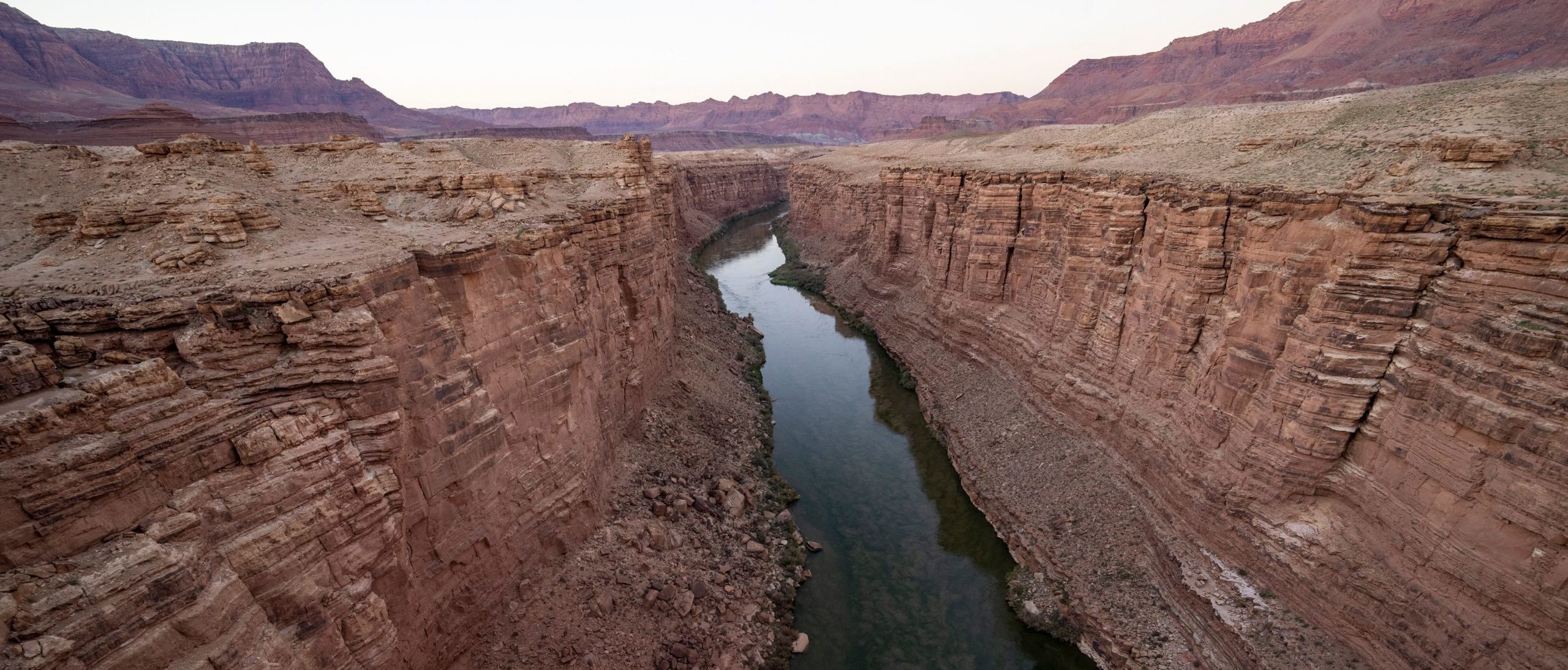The Biden administration offered up more than $1 billion through its signature climate bill to conserve water in the Southwest, significantly raising the cost of regional water conservation in the process, Politico reported.
The Biden administration offered $1.2 billion from the Inflation Reduction Act to facilitate an agreement between Arizona, California and Nevada to lessen water consumption in those states by paying water-rights holders to engage in practices that use water more efficiently, according to Politico. Many of these water users, however, were already being paid to conserve water using almost the same methods under significantly cheaper contracts.
“There’s sort of a rumor in the water community that a lot of people are getting paid to do what they would have done anyway,” one former water official told Politico. Another former water official said that the IRA money would create a new market for water and make it more expensive to pay users to reign in their usage. (RELATED: The Panama Canal Is Drying Up, And It Could Wreak Havoc On Consumers Around The World)
Politico’s investigation found that the $1.2 billion spent by the Biden administration increased the cost of existing water-saving agreements by nearly 50%.
Roughly a third of the water conserved in California under the federally-backed three-state agreement was already being saved under less expensive existing contracts.
The agreement came after water levels at Lake Mead, a key reservoir along the Colorado River, reached historic lows, making it possible that the Hoover Dam could run dry, according to Politico. The Colorado River provides water to over 40 million people and 15% of American farmland, according to the Utah Division of Water Resources.
Federal funding for the agreement expires in 2026. It is unclear where funding will come from to match the new, higher water conservation prices.

A view of the Colorado River from the Navajo Bridge in Marble Canyon, Arizona, August 31, 2022. – Amidst the drought and water shortages plaguing the country, last month the US government declared a water shortage on the Colorado River for the first time, triggering mandatory water consumption cuts for states in the Southwest, as climate change-fueled drought pushes the level in Lake Powell and Lake Mead to unprecedented lows. (Photo by ROBYN BECK/AFP via Getty Images)
Bureau of Reclamation Commissioner Camille Touton conceded that many of the contracts offered to water-rights holders were based on cheaper prior agreements. Touton argued that the new contracts were different as they would ensure water would stay in Lake Mead, Politico reported.
Many of the entities receiving the federal contracts, however, would have been required to cut their usage anyway if Lake Mead depleted further.
The IRA has energy and climate provisions that will cost taxpayers nearly $400 billion over the next ten years, per the Congressional Budget Office. Some estimates, such as one produced by Goldman Sachs, peg the cost much higher at $1.2 trillion.
The Bureau of Reclamation and the Department of the Interior did not immediately respond to the Daily Caller News Foundation’s request for comment.
All content created by the Daily Caller News Foundation, an independent and nonpartisan newswire service, is available without charge to any legitimate news publisher that can provide a large audience. All republished articles must include our logo, our reporter’s byline and their DCNF affiliation. For any questions about our guidelines or partnering with us, please contact licensing@dailycallernewsfoundation.org.


